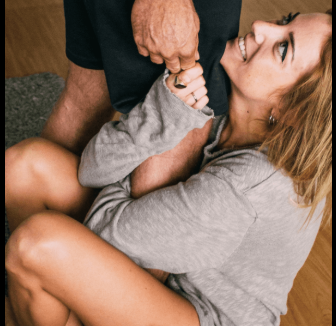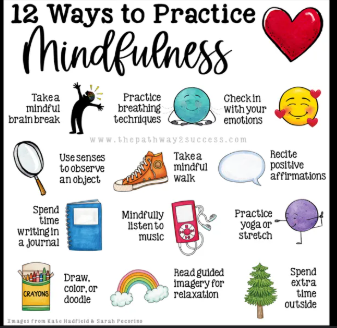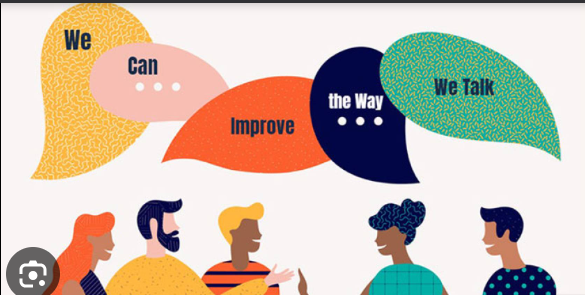Happy Stress-free Life!

Hi Rafiki, “You know that feeling when you take a bite of something really sour—like a lemon, or that last-minute work email that hits your inbox at 4:59 p.m. when you’re just about to clock out physically from your 9:00 – 5:00 pm, or that flight you were so happy to land in a few minutes and the air traffic controller diverts you to a different aerodrome because there was an emergency’? That’s exactly how stress feels when it hits. Except, it lingers… and the lemon’s not going away, become sourer and staler.”
More often than not, stress feels like that clingy friend who you just can’t get rid of, ever present yet so draining because they carry with them such negative energy and you can’t even put a finger on it, mnhhhhh…… we all have one …. Don’t be scared to admit it. I keep finding myself in such dilemma’s and sometimes I turn to the phrase WWJD (What Would Jesus Do) literally.

Truth is, stress is a natural part of the human experience, for as long as we are living beings…….things alike. Stress has either touched or completely consumed us by the mere rising and setting of the sun. Stress can arise from our personal lives, work demands, relationships, and even the unmet expectations we place on ourselves or lack thereof altogether. Given that we live in a rather fast-paced world, stress has become an almost ubiquitous part of daily life. It’s almost impossible to avoid stress completely, especially now in RUTONOMICS bottom-up unfavourable conditions that has all if not most of us in a permanent state of anxiety.
After years and years on end of struggling, I looked at stress and thought, ‘Okay, I get it. You’re persistent. But guess what? I’m not signing up for overtime anymore.’” “you’ve manifested physically, emotionally and mentally and at this very moment I need to fight for my life, I need to fight with all that I’ve got before I see it flash before my eyes. My tired is tired as my overwhelmed is overwhelmed. I need to live, live up to my potential or at least try…” Yeah…… I had to start bargaining with stress in order to find harmony and balance in my everyday life
To cope effectively, I had to learn first how to recognize stress for what it is— a signal from my bodies that I damn right needed to pay attention to something important. Sometimes, stress may be a result of external pressures, but it can also stem from internal pressures, like perfectionism, fear of failure, or the constant pursuit of unrealistic goals. By understanding the triggers of stress, we can take proactive steps to manage it, instead of letting it control us. While we cannot avoid it entirely, we can learn how to cope with stress in healthy, productive ways that allow us to navigate life’s challenges with grace and resilience. The key to managing stress lies in acknowledging its presence, understanding its sources, and finding the right strategies to alleviate its weight on our minds and bodies.

One of the most effective ways that helped me cope with stress is mindfulness, literally sipping on water and minding my business. Mindfulness, is basically the practice of being present in the moment without judgment, helps us create a sense of calm and control amidst chaos. It allows us to detach from the whirlwind of anxious thoughts and emotions, giving us space to breathe and reset. Practicing mindfulness can be as simple as focusing on your breath for a few moments or taking a short walk outside. These moments of pause allow us to connect with the present rather than worrying about the past or future. Every single day I’d remind myself to take deeper inhalations than normal and hold while counting 1 to 5 then exhale 5 to 1 backwards and very slowly as though my life depended on it (it literally did). Sounds so simple, like our bodies would naturally do this……..right? It wasn’t for me. I needed to set alarms and multiple reminders to simply breath and be mindful.
Incorporating mindfulness into my daily life proved to be so simple but so powerful. You might try starting your day with a few minutes of meditation or deep breathing exercises. Paying full attention to the task at hand, whether it’s eating a meal or having a conversation, can also help ground you and reduce feelings of overwhelm. By developing the habit of returning to the present moment, you allow yourself to experience life with greater clarity and peace.

Exercise is one of the most effective tools for managing stress, I mean, we all are aware of this by now?? Right? But do we put this to practise…….. do you? I struggled too, still do even as I pen this down. Physical activity releases endorphins—natural mood elevators that can help counterbalance feelings of stress. Whether it’s a long run(barely love to), a yoga session, or simply stretching, movement helps release built-up tension in the body and mind. Additionally, exercise allows us to step away from stressful situations and focus on something positive, even if only for a brief time.
For many, physical activity can also provide a sense of achievement and empowerment. Completing a workout or mastering a new yoga pose can boost self-confidence, creating a mental buffer against future stressors. Regular exercise not only improves physical health but also nurtures emotional resilience. It’s a reminder that taking care of our bodies is an integral part of managing stress. The numbers of times I’ve left the gym feeling like I could conquer the world, is what draws me back nowadays.
I know, friendship seems to have lost its meaning, and more and more we’re leaning towards an individualistic approach to life. While it’s natural to want to cope with stress independently, we must remember that human connection is vital to our well-being. We must open ourselves to being vulnerable and take that leap of faith with at least one friend, one family member and HI RAFIKI. In fact, the betrayals, misunderstanding and fallouts with friends is what birthed HI RAFIKI, I needed someone to lash out on, vent and pour myself out to without fear or doubt of judgement or exposure and I realised reaching out to family, friends, HI RAFIKI or colleagues during stressful times was helpful in alleviating feelings of isolation. Sometimes, simply talking about our worries can provide relief, offering perspective and support from others who care. Social connections also help us feel understood and validated, which can lighten the emotional load of stress.

In addition to sharing our concerns with others, it’s important to surround ourselves with people who uplift and encourage us. Positive, supportive relationships act as a buffer against stress, offering a sense of safety and comfort. If you find that certain relationships are sources of stress themselves, it may be worth reflecting on how you can set boundaries to protect your mental and emotional health. At the end of the day You come first, and you deserve to find your Rafiki.
In our modern world, there is often a tendency to push through exhaustion and continue working, even when we’re mentally and physically drained, our hustle culture is deeply rooted from our needs, sometimes greed for more and more and sometimes just for the applause. However, one of the most critical aspects of coping with stress is recognizing the importance of rest and it has to lean more towards Eustress (positive kind of stress) not distress(negative kind of stress). Our bodies and minds need time to recover and recharge. Sleep is a vital part of this process, and without it, stress levels can rise and resilience can diminish.
Take time to listen to your body and allow yourself the grace to rest when needed. This could mean taking a nap during the day, getting an extra hour of sleep at night, or simply taking a mental break from work or responsibilities. It’s okay to pause and prioritize your health over productivity. After all, rest is not only beneficial but necessary for long-term well-being. Your life depends on it honey.
Over time, it’s important to develop healthy coping mechanisms that work for you. These could range from creative outlets like sing along nights, journaling or painting, to hobbies that bring joy and relaxation, such as gardening, podcasting, dancing, or cooking. It might also involve engaging in self-care rituals, such as taking a hot bath, reading a book, or indulging in a favourite pastime or reigniting the fire in you through adventures of travelling, bungee jumping, sky diving or swimming with the sharks. Release your fears, and what ifs, rediscover yourself by engaging in activities and habits that restore balance to your life. Find your harmony, find your rhythm and dance to the beat.

Equally important is learning to recognize when stress is becoming too much to handle alone. Seeking professional help, whether through therapy or counseling, can be an invaluable step in managing stress, my honest advice, don’t wait until your drowning or twitching your eyes to get on to therapy. Start at your happiest, do it on a monthly basis and you’ll thank me later, because your decision making skills and critical thinking will quadruple and reflect in all that you undertake.. Also, Hi Rafiki, your bestie, has a wide range of able professionals in mental wellness and she can link you up with one that best suits your needs and personality and through therapy likely you will explore the deeper causes of your stress and map out a plan for yourself on how to develop coping strategies, and experience the support that you need through your journey to wellness.

Truth be told, none of us is invincible. Stress is an inevitable part of life, but it does not define us, it shouldn’t. I have coped with it, so can you. How we cope with it, however, shapes our experience and can transform a potentially overwhelming situation into an opportunity for growth and self-awareness. By acknowledging stress, embracing mindfulness, prioritizing physical health, seeking connection, and giving ourselves permission to rest, we can navigate life’s challenges with greater resilience and confidence. The journey to managing stress is not linear, but with patience and self-compassion, we can cultivate the tools necessary to live a balanced, peaceful life—even amidst the storms. We cant wait to also avail to you your virtual best friend, one who listens to understand you, one who gossips with you, one who empowers and encourages you through and through and on some days criticizes you with so much love and gets you climbing up the ladders to greater heights.
Thanks for being a part of our family rafiki.
Love, light and laughter through this festive season and beyond.

References
American Psychological Association. (2020). Stress in America: The state of our nation. https://www.apa.org/news/press/releases/stress/2020/state-nation
Kabat-Zinn, J. (2013). Full catastrophe living: Using the wisdom of your body and mind to face stress, pain, and illness (Revised ed.). Delta.
McEwen, B. S. (2006). Protective and damaging effects of stress mediators: Central role of the brain. Dialogues in Clinical Neuroscience, 8(4), 367–381. https://doi.org/10.31887/DCNS.2006.8.4/bmcewen
Goleman, D. (2003). Emotional intelligence: Why it can matter more than IQ (10th anniversary ed.). Bantam.
Vaillant, G. E. (2012). Triumphs of experience: The men of the Harvard Grant Study. Belknap Press.